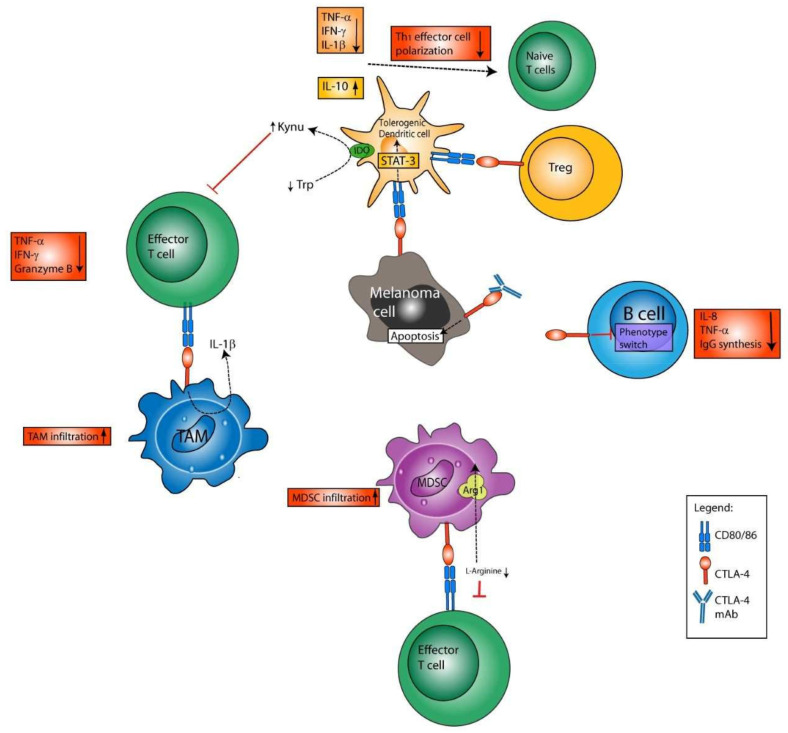Figure 2.
Immunomodulatory role of cytotoxic-T-lymphocyte antigen 4 (CTLA-4). CTLA-4 is expressed by regulatory T cells (Tregs), tumor-associated macrophages (TAM), myeloid-derived suppressor cells (MDSCs), dendritic cells (DCs), B cells and melanoma cells. The interaction of CTLA-4 on melanoma cells, as well as Tregs, with DC-bound CD80/CD86 resulted in the polarization of DCs towards a tolerogenic phenotype. Such DCs conferred depletion of tryptophan (Trp) from the microenvironment via IDO activation, and at the same time enhanced levels of Trp degradation products, termed kynurenins (Kynu). Both Trp depletion and Kynu impair activation/polarization of naïve T cells towards Th1 T effector cells and effector T cell functions. Further, tolerogenic DCs generate soluble anti-inflammatory agents, such as IL-10, which also contribute to T-cell impairment. Further, binding of CTLA-4 on TAMs and MDSCs with CD80/CD86 on T effector cells has been found to impair anti-tumor activity and enhance the infiltration of TAMs and MDSCs into the tumor microenvironment. Lastly, the binding of CTLA-4 on B cells, presumably via CD80/86 on activated T cells (not shown), has been found to reduce antibody synthesis and Ig class switch.

